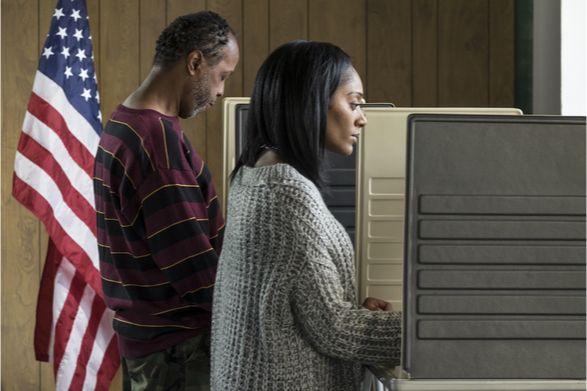On Thursday evening, as all eyes will be on the looming Democratic primary in South Carolina, I will join hundreds of black men and women at the White House for a celebration of Black History Month.
President Trump will once again host black leaders, students, and activists from across the country to recognize the contributions our people have made to this nation. Being invited to the White House is an honor on its own, but for black conservatives and Trump supporters, attending is a statement of courage. We are standing up for our right to support the policies and the person making economic, educational and social headway for blacks.
Thursday’s event feels like a reunion for those of us philosophical black sheep who have been kicked out of the family by our woke relatives because of our beliefs.
Though only a few will be blessed to attend, there are many more blacks who quietly support President Trump and applaud his work to free wrongly imprisoned blacks single-handedly or through criminal justice reforms.
While the media largely ignored it, four people granted clemency or pardoned by President Trump last week were women of color.
While the media largely ignored it, four people granted clemency or pardoned by President Trump last week were women of color: Angela Stanton, Crystal Munoz, Tynice Hall, and Judith Negron. They join Alice Marie Johnson as faces of overcriminalization in America.
Black political leaders, business leaders, and celebrities should welcome the first steps of reforms to our justice system that they have long promoted, but their rage against Trump bars them applauding his good works. That is a mistake that will have political consequences in November.
Following the State of the Union address, CNN host Van Jones made an impassioned wake-up call to Democrats that they shouldn’t ignore what President Trump is doing for the black community and how he is reaching out to them. “What he was saying to African Americans can be effective. You may not like it, but he mentioned HBCUs, … , he threw a lifeline to them in real life in his budget… He talked about criminal justice reform. He talked about opportunity zones.”
Jones added that President Trump is “going after enough black votes to cause us problems.”
Jones is right. Black voters have been disgruntled with the Democratic Party and are slowly reconsidering their support.
The 2019 Power of the Sister Vote Poll conducted for the 5th year in a row by Essence Magazine and the Black Women’s Roundtable hints at the splintering among the black female voters who form the most loyal base of the Democratic Party support. In 2019, some 73 percent said the Democratic Party best represents their interest, but that was down 12 percentage points from 2016. About a quarter of black women say they are Independent or unaffiliated.
The generational differences are stark. Just 45 percent of young black women say the Democratic Party speaks for them and nearly a third say no party best represents them. While Biden was a top choice among all black women, Bernie Sanders led among Millennials and Generation Z. More surprisingly, double the percent of young black women would vote for President Trump compared to all black women.
We can expect similar demographic trends in South Carolina, where black voters comprise 60 percent of the electorate. The state will be the first test of which Democratic contender attracts black support.
According to the Real Clear Politics, Former Vice President Joe Biden has watched his support (including black support) erode as Senator Bernie Sanders and businessman Tom Steyer closed what was a significant double-digit lead to just a few points. A recent CBS News poll demonstrates how underwater Biden is among the 18-29 crowd as Bernie captures 45 percent compared to his 14 percent.
Whoever wins South Carolina has a good shot of winning the other “Black Belt” states: Alabama, Georgia, Louisiana, and Mississippi. They all have a majority black electorate (or close to it) and all voted for the same Democratic candidate going back to 1988 (with one exception). It’s logical that so much attention is being paid to South Carolina.
Democrats have challenges beyond just selecting among the current crop of lackluster candidates. Independent-thinking blacks are embracing candidates and policies that they believe will serve their best interests. If that is low unemployment, investment in poor neighborhoods, and school choice then President Trump and conservatives have a compelling case to make.
The black community is not monolithic. Increasingly, America is waking up to that realization and policymakers can no longer take their support for granted.


